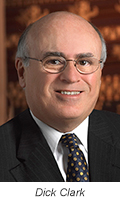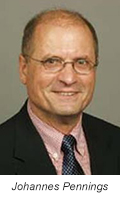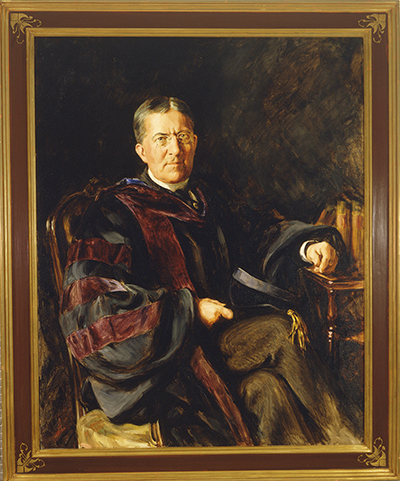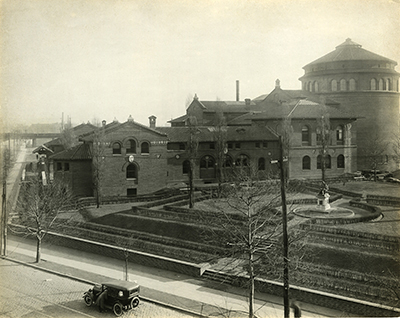Nursing’s Barbara Bates Center for the Study of the History of Nursing: Patricia D’Antonio
-Patricia.jpg) Patricia D’Antonio has been appointed director of Penn Nursing’s Barbara Bates Center for the Study of the History of Nursing. Dr. D’Antonio, the Killebrew-Censits Term Professor in Undergraduate Education and chair of the department of family & community health, previously served as the Center’s associate director. Her appointment was effective October 21.
Patricia D’Antonio has been appointed director of Penn Nursing’s Barbara Bates Center for the Study of the History of Nursing. Dr. D’Antonio, the Killebrew-Censits Term Professor in Undergraduate Education and chair of the department of family & community health, previously served as the Center’s associate director. Her appointment was effective October 21.
“As a national and international expert in the history of nursing and nursing practice, Dr. D’Antonio is the ideal choice for this leadership role,” said the Margaret Bond Simon Dean of Nursing Antonia Villarruel. “Her research emphasizes how this history contributes to the current status of the discipline of nursing, health care and developments in the humanities and sciences.”
Dr. D’Antonio is a nurse and historian whose body of scholarship situates the profession’s work and worth in both American hospitals and health care agencies and in the fabric of families and communities. She is the editor of the Nursing History Review, the official journal of the American Association for the History of Nursing; a senior fellow at the Leonard Davis Institute for Health Economics; a core faculty member of Women’s Studies; and a member of the Graduate Group in the History and Sociology of Science. Dr. D’Antonio also has a strong international presence and serves on numerous advisory and editorial boards, including that of the UK Centre for the History of Nursing and Midwifery and Nursing Inquiry, among many others.
Dr. D’Antonio’s current research analyzes the critically important role nurses played in the early 20th century’s experimental health demonstration projects that sought to increase health care access and equity to poor, working class, immigrant and rural families. Her previous book, American Nursing: A History of Knowledge, Authority and the Meaning of Work, positions nurses as absolutely central to the larger interdisciplinary histories of institutions, clinical practice, health care policy and women’s care work. This book has been internationally recognized for its importance in creating a new intellectual paradigm for nursing’s history: one that analyzes nurses as members of families and communities, as well as clinicians in hospitals and health care agencies.
Dr. D’Antonio replaces Julie Fairman, the Nightingale Professor of Nursing and chair of the department of biobehavioral health sciences, who is stepping down as head of the Center after nearly ten years of leadership.
Richard T. and Angela Clark President’s Distinguished Professor: Francis E. Marchlinski
 Francis E. Marchlinski has been named the inaugural Richard T. and Angela Clark President’s Distinguished Professor. As director of electrophysiology, Dr. Marchlinski has made the program at the Hospital of the University of Pennsylvania one of the largest on the east coast and one of the two largest single-hospital programs in the country.
Francis E. Marchlinski has been named the inaugural Richard T. and Angela Clark President’s Distinguished Professor. As director of electrophysiology, Dr. Marchlinski has made the program at the Hospital of the University of Pennsylvania one of the largest on the east coast and one of the two largest single-hospital programs in the country.
The Clark President’s Distinguished Professorship will enable Dr. Marchlinski and his team of physicians to advance work in the area of ablation—among other projects—which he helped to pioneer and continues to improve through leading clinical trials and original research studies. Ablation, a strategic scarring of a small part or parts of the patient’s heart to treat irregular heartbeats, is a capstone to the cardiac rhythm management he initially introduced to Penn in 1981 with the implantable defibrillator.
“Dr. Marchlinski’s groundbreaking treatment for arrhythmia preserves life—and returns quality of life by reducing recovery time. His dedication to excellence in patient care is fittingly recognized by Dick Clark, whose tireless efforts on behalf of the Penn Cardiovascular Institute have benefitted so many individuals,” said J. Larry Jameson, executive vice president of the University of Pennsylvania for the Health System and dean of the Perelman School of Medicine. “I am tremendously grateful for Angela and Dick’s remarkable support, and look forward to seeing Dr. Marchlinski’s work reach greater heights.”
 Mr. and Mrs. Clark established a President’s Distinguished Professorship with a $3 million gift. The Clarks chose to use the $750,000 freed up by the President’s Distinguished Professorship Fund match to establish an innovation research fund in the electrophysiology program. Mr. Clark is the former chairman and CEO of Merck and is chair of the Penn Cardiovascular Institute Leadership Council, as well as a Penn Medicine Trustee.
Mr. and Mrs. Clark established a President’s Distinguished Professorship with a $3 million gift. The Clarks chose to use the $750,000 freed up by the President’s Distinguished Professorship Fund match to establish an innovation research fund in the electrophysiology program. Mr. Clark is the former chairman and CEO of Merck and is chair of the Penn Cardiovascular Institute Leadership Council, as well as a Penn Medicine Trustee.
Dr. Marchlinski currently serves on the scientific advisory board for multiple medical device design and manufacturing agencies, and is a fellow of the American Heart Association and the Heart Rhythm Society (formerly North American Society of Pacing and Electrophysiology— NASPE). Dr. Marchlinski has authored and co-authored more than 350 original scientific articles and more than 200 book chapters, reviews and editorials on a variety of topics related to cardiac electrophysiology.
$1 Million Gift Providing Scholarships to University of Pennsylvania Students from Northeastern Pennsylvania
 A $1 million endowment gift from Carol A. Kiryluk of Key Biscayne, Florida, will establish a new scholarship fund for students from northeastern Pennsylvania to attend the University of Pennsylvania.
A $1 million endowment gift from Carol A. Kiryluk of Key Biscayne, Florida, will establish a new scholarship fund for students from northeastern Pennsylvania to attend the University of Pennsylvania.
The scholarship fund—named in memory of Ms. Kiryluk’s mother, Ann Mae Mankausky Kiryluk—will provide financial aid to academically qualified undergraduate students hailing from Wyoming County, Pennsylvania, or from the state’s other northeastern counties, including Lackawanna, Luzerne, Susquehanna, Bradford, Sullivan, Wayne, Pike, Monroe and Carbon.
Ms. Kiryluk, who graduated in 1968 from what was then known as The College for Women (now part of Penn’s College of Arts & Sciences), grew up in Nicholson, a small town in northeastern Pennsylvania. She credits attending the University of Pennsylvania with broadening her horizons and providing the base for her career in the international arena. With this endowment, it is her intention to support students from her home region in realizing their future successes as a result of attending Penn without undue financial burdens.
Penn’s commitment to all-grant financial aid and need-blind admission means that every Penn student is accepted without regard to a student’s ability to pay the costs of attending. Named endowed scholarships, such as the one Ms. Kiryluk has established, contribute to the University’s ability to honor this commitment.
“Ms. Kiryluk’s generosity is making it possible for promising young people from the state of Pennsylvania, who would otherwise not have the means, to receive not just an education—an incredible gift in and of itself—but an education at the University of Pennsylvania,” said Steven J. Fluharty, dean of Penn Arts & Sciences. “We are grateful to Ms. Kiryluk for her remarkable generosity and delighted we could help honor the memory of her mother, Ann Mae Mankausky Kiryluk, in such a meaningful way.”
Maximizing Your Retirement Savings in 2016
The IRS has issued the annual retirement plan contribution limits for 2016. The limit for combined pre-tax and Roth contributions remains unchanged at $18,000 per person. If you are over 50 years old or will turn 50 at any time in 2016, you can make additional catch-up contributions up to $6,000.
Visit the Contributions page at https://www.hr.upenn.edu/myhr/benefits/retirement/
tdr/contributions/ for details or contact the Retirement Call Center at 1-877-PENN-RET (1-877-736-6738) for help determining the right weekly or monthly contribution amount to maximize your savings.
—Division of Human Resources
Angela Goldston: PennCard Director
 The Division of Business Services is pleased to announce that Angela Goldston has been named the new director of the PennCard Center. She has served as PennCard’s associate director since 2011. In that role, she handled finance, operations and customer service functions.
The Division of Business Services is pleased to announce that Angela Goldston has been named the new director of the PennCard Center. She has served as PennCard’s associate director since 2011. In that role, she handled finance, operations and customer service functions.
Before joining Penn, Ms. Goldston held several corporate positions focusing on financial analysis. She also has experience in the education sector as both a professional tutor and an instructor.
She holds a bachelor of business administration from the University of Pittsburgh and completed her graduate work at St. Joseph’s University, where she received her MBA. As director, she will take on the responsibility for managing all aspects of PennCard operations, such as leading the deployment and expansion of the new contactless card technology, adoption and application of the Blackboard Transaction system, marketing of the PennCash debit program and managing Penn’s marketing relationship with PNC Bank.
She will also manage the day-to-day operations of the PennCard Center on the second floor of the Penn Bookstore. In addition to producing and managing PennCards, the University’s official identification card, the office provides other convenient amenities including notary services, stamps, passport photos and card reader rentals. A representative from PNC Bank is also located in the PennCard Center to help faculty, students and staff with their banking needs.
Call for Online Course Proposals for Summer 2016: December 1
Arts & Sciences Online Learning offers faculty the opportunity to teach fully online credit-bearing courses. Proposals for credit-bearing summer 2016 online courses are due December 1.
All proposals will be reviewed by Arts & Sciences Online Learning, the director of Penn Summer Programs and the Curriculum Committee.
Faculty with successful proposals may be eligible for a development stipend to support transitioning their course content to the online format, in addition to a stipend for teaching. Additionally, faculty teaching online will receive course design support, digital content production and technical assistance from the Arts & Sciences Online Learning team throughout the development and teaching phases.
Please note that though all proposals will be considered, some proposals will not be accepted for rostering by LPS and not all instructors are eligible for a development stipend.
To begin the process, visit https://www.sas.upenn.edu/onlinelearning/faculty-resources
HR: Summary Annual Reports for the University of Pennsylvania (for the period January 1, 2014 through December 31, 2014)
Basic Plan
This is a summary of the annual report of The University of Pennsylvania Basic Plan (Plan No. 028) sponsored by the University of Pennsylvania, EIN: 23-1352685, for the period January 1, 2014 through December 31, 2014. This annual report has been filed with the Employee Benefits Security Administration, as required under the Employee Retirement Income Security Act of 1974 (ERISA).
Basic Financial Statement
Benefits under the plan are provided through unallocated insurance contracts and a trust fund. Plan expenses were $17,700,268. These expenses included $6,544 in administrative expenses and $17,693,724 in benefits paid to participants and beneficiaries. A total of 21,962 persons were participants in or beneficiaries of the plan at the end of the plan year.
The value of plan assets, after subtracting liabilities of the plan, was $687,608,139 as of December 31, 2014, compared to $609,530,638 as of January 1, 2014. During the plan year the plan experienced an increase in its net assets of $78,077,501. This increase includes net unrealized appreciation in the value of plan assets; that is, the difference between the value of the plan’s assets at the end of the plan year and the value of assets at the beginning of the plan year or the cost of assets acquired during the plan year. The plan had total income of $95,777,769, including employer contributions of $47,098,459, employee rollover contributions of $590,039, gains from investments of $48,018,453 and other income of $70,818.
Matching Plan
This is a summary of the annual report of The University of Pennsylvania Matching Plan (Plan No. 001) sponsored by the University of Pennsylvania, EIN: 23-1352685, for the period January 1, 2014 through December 31, 2014. This annual report has been filed with the Employee Benefits Security Administration, as required under the Employee Retirement Income Security Act of 1974 (ERISA).
Basic Financial Statement
Benefits under the plan are provided through unallocated insurance contracts and a trust fund. Plan expenses were $180,008,758. These expenses included $64,499 in administrative expenses and $179,944,259 in benefits paid to participants and beneficiaries. A total of 23,982 persons were participants in or beneficiaries of the plan at the end of the plan year.
The value of plan assets, after subtracting liabilities of the plan, was $3,811,200,104 as of December 31, 2014, compared to $3,608,927,955 as of January 1, 2014. During the plan year the plan experienced an increase in its net assets of $202,272,149. This increase includes net unrealized appreciation in the value of plan assets; that is, the difference between the value of the plan’s assets at the end of the plan year and the value of assets at the beginning of the plan year or the cost of assets acquired during the plan year. The plan had total income of $382,280,907, including employer contributions of $57,124,606, employee contributions of $60,445,569, employee rollover contributions of $10,167,618, earnings from investments of $253,809,499 and other income of $733,615.
Supplemental Retirement Annuity Plan
This is a summary of the annual report of The Supplemental Retirement Annuity Plan of the University of Pennsylvania (Plan No. 002) sponsored by the University of Pennsylvania, EIN: 23-1352685, for the period January 1, 2014 through December 31, 2014. This annual report has been filed with the Employee Benefits Security Administration, as required under the Employee Retirement Income Security Act of 1974 (ERISA).
Basic Financial Statement
Benefits under the plan are provided through unallocated insurance contracts and a trust fund. Plan expenses were $32,635,205. These expenses included $9,749 in administrative expenses and $32,625,456 in benefits paid to participants and beneficiaries. A total of 23,723 persons were participants in or beneficiaries of the plan at the end of the plan year.
The value of plan assets, after subtracting liabilities of the plan, was $900,779,777 as of December 31, 2014, compared to $803,192,948 as of January 1, 2014. During the plan year the plan experienced an increase in its net assets of $97,586,829. This increase includes net unrealized appreciation in the value of plan assets; that is, the difference between the value of the plan’s assets at the end of the plan year and the value of assets at the beginning of the plan year or the cost of assets acquired during the plan year. The plan had total income of $130,222,034 including employee contributions of $42,967,058, employee rollover contributions of $26,535,609, gains from investments of $60,574,563 and other income of $144,804.
Your Rights to Additional Information for Basic, Matching and Supplemental Retirement Annuity Plans
Under ERISA, you have the right to receive a copy of the full annual report, or any part thereof, upon request. The items listed below are included in that report for the Supplemental Retirement Annuity Plan of the University of Pennsylvania:
1. An accountant’s opinion;
2. Financial information;
3. Information on payments to service providers;
4. Assets held for investment;
5. Insurance information; and
6. Information regarding pooled separate
accounts in which the plan participates.
To obtain a copy of the full annual report, or any part thereof, write or call the office of the Plan Administrator, c/o Joanne M. Blythe, Retirement Manager, University of Pennsylvania, 3401 Walnut Street, Suite 527A, Philadelphia, PA 19104-6228, (215) 898-9947. The charge to cover copying costs will be $5 for the full annual report or 25 cents per page for any part thereof.
You also have the right to receive from the Plan Administrator, on request and at no charge, a statement of the assets and liabilities of the plan and accompanying notes, or a statement of income and expenses of the plan and accompanying notes, or both for the Supplemental Retirement Annuity Plan of the University of Pennsylvania. If you request a copy of the full annual report from the Plan Administrator, these two statements and accompanying notes will be included as part of that report. The charge to cover copying costs given above does not include a charge for the copying of these portions of the report because these portions are furnished without charge.
You also have the legally protected right under ERISA to examine the annual reports in the offices of the Employer at the address for the Plan Administrator, above, and at the U.S. Department of Labor in Washington, D.C., or to obtain a copy from the U.S. Department of Labor upon payment of copying costs. Requests to the Department should be addressed to: Public Disclosure Room, Room N-1513, Employee Benefits Security Administration, U.S. Department of Labor, 200 Constitution Avenue, N.W., Washington, D.C. 20210.
—Division of Human Resources
Health and Welfare Plan for Retirees and Disabled Employees (for the period January 1, 2014 through December 31, 2014)
This is a summary of the annual report of the University of Pennsylvania Health and Welfare Plan for Retirees and Disabled Employees (Plan No. 530), sponsored by The Trustees of the University of Pennsylvania, EIN 23-1352685 for the period that began on January 1, 2014 and ended on December 31, 2014. The annual report has been filed with the Employee Benefits Security Administration as required under the Employee Retirement Income Security Act of 1974 (ERISA). Please note that not all employees are eligible to participate in the Plan. Please consult your Plan materials for specific eligibility information.
Retiree benefits were provided through a combination of self-insured payments from the University’s general assets, payments from a trust fund established to fund retiree benefits and insurance contracts with third party insurance companies.
Medical, Dental and Prescription Drug Benefits Insurance Information
The Plan has contracts with Aetna Health, Inc., Keystone Health Plan East, Independence Blue Cross, Amerihealth and Metropolitan Life Insurance Company to pay medical and dental claims incurred under the terms of the contracts. The total premiums paid for the plan year ending December 31, 2014 were $1,075,191.
Basic Financial Information
The value of Plan assets, after subtracting liabilities of the Plan, was $352,166,486 as of December 31, 2014, compared to $321,585,059 as of January 1, 2014. During the plan year the Plan experienced an increase in its net assets of $30,581,427. This increase includes net unrealized appreciation in the value of Plan assets; that is, the difference between the value of the Plan’s assets at the end of the year and the value of assets at the beginning of the year or the cost of assets acquired during the year. The Plan had total income of $46,737,680 including employee contributions of $5,497,456, employer contributions of $23,074,740 and gains from investments of $18,165,484.
Plan expenses were $16,156,253. These expenses included $1,720,680 in administrative expenses and $14,435,573 in benefits paid to participants and beneficiaries.
Life Insurance Benefits
The Plan has a contract with Aetna Life Insurance Company to pay life insurance claims incurred under the terms of the contract. The total premiums paid under this contract for the plan year ending December 31, 2014 were $454,311.
Your Rights to Additional Information
You have the right to receive a copy of the full annual report, or any part thereof, on request. The items listed below are included in that report:
1. An accountant’s opinion;
2. Financial information;
3. Information on payments to service providers;
4. Assets held for investment; and
5. Insurance information.
To obtain a copy of the full annual report, or any part thereof, write or call the office of the Plan Administrator, c/o Joanne M. Blythe, retirement manager, University of Pennsylvania, 3401 Walnut Street, Suite 527A, Philadelphia, PA 19104-6228, (215) 898-9947. The charge to cover copying costs will be $5 for the full annual report or 25 cents per page for any part thereof.
You also have the right to receive from the Plan Administrator, on request and at no charge, a statement of the assets and liabilities of the Plan and accompanying notes, or a statement of income and expenses of the plan and accompanying notes, or both. If you request a copy of the full annual report from the Plan Administrator, these two statements and accompanying notes will be included as part of that report. The charge to cover copying costs given above does not include a charge for the copying of these portions of the report because these portions are furnished without charge.
You also have the legally protected right under ERISA to examine the annual reports in the offices of the Employer at the address for the Plan Administrator, above, and at the U.S. Department of Labor in Washington, D.C., or to obtain a copy from the U.S. Department of Labor upon payment of copying costs. Requests to the Department should be addressed to: Public Disclosure Room, Room N-1513, Employee Benefits Security Administration, U.S. Department of Labor, 200 Constitution Avenue, N.W., Washington, D.C. 20210.
—Division of Human Resources
-Patricia.jpg) Patricia D’Antonio has been appointed director of Penn Nursing’s Barbara Bates Center for the Study of the History of Nursing. Dr. D’Antonio, the Killebrew-Censits Term Professor in Undergraduate Education and chair of the department of family & community health, previously served as the Center’s associate director. Her appointment was effective October 21.
Patricia D’Antonio has been appointed director of Penn Nursing’s Barbara Bates Center for the Study of the History of Nursing. Dr. D’Antonio, the Killebrew-Censits Term Professor in Undergraduate Education and chair of the department of family & community health, previously served as the Center’s associate director. Her appointment was effective October 21.
 Francis E. Marchlinski has been named the inaugural Richard T. and Angela Clark President’s Distinguished Professor. As director of electrophysiology, Dr. Marchlinski has made the program at the Hospital of the University of Pennsylvania one of the largest on the east coast and one of the two largest single-hospital programs in the country.
Francis E. Marchlinski has been named the inaugural Richard T. and Angela Clark President’s Distinguished Professor. As director of electrophysiology, Dr. Marchlinski has made the program at the Hospital of the University of Pennsylvania one of the largest on the east coast and one of the two largest single-hospital programs in the country. Mr. and Mrs. Clark established a President’s Distinguished Professorship with a $3 million gift. The Clarks chose to use the $750,000 freed up by the President’s Distinguished Professorship Fund match to establish an innovation research fund in the electrophysiology program. Mr. Clark is the former chairman and CEO of Merck and is chair of the Penn Cardiovascular Institute Leadership Council, as well as a Penn Medicine Trustee.
Mr. and Mrs. Clark established a President’s Distinguished Professorship with a $3 million gift. The Clarks chose to use the $750,000 freed up by the President’s Distinguished Professorship Fund match to establish an innovation research fund in the electrophysiology program. Mr. Clark is the former chairman and CEO of Merck and is chair of the Penn Cardiovascular Institute Leadership Council, as well as a Penn Medicine Trustee. A $1 million endowment gift from Carol A. Kiryluk of Key Biscayne, Florida, will establish a new scholarship fund for students from northeastern Pennsylvania to attend the University of Pennsylvania.
A $1 million endowment gift from Carol A. Kiryluk of Key Biscayne, Florida, will establish a new scholarship fund for students from northeastern Pennsylvania to attend the University of Pennsylvania. The Division of Business Services is pleased to announce that Angela Goldston has been named the new director of the PennCard Center. She has served as PennCard’s associate director since 2011. In that role, she handled finance, operations and customer service functions.
The Division of Business Services is pleased to announce that Angela Goldston has been named the new director of the PennCard Center. She has served as PennCard’s associate director since 2011. In that role, she handled finance, operations and customer service functions. Johannes (Hans) Pennings, the Marie and Joseph Melone Professor Emeritus of Management at the Wharton School, died on October 29 after a difficult battle with cancer. He was 74 years old.
Johannes (Hans) Pennings, the Marie and Joseph Melone Professor Emeritus of Management at the Wharton School, died on October 29 after a difficult battle with cancer. He was 74 years old..jpg) Anthony (Tony) Lyle, C’61, a former editor of The Pennsylvania Gazette who worked at Penn for more than three decades, died of a heart attack on October 27 at the age of 79.
Anthony (Tony) Lyle, C’61, a former editor of The Pennsylvania Gazette who worked at Penn for more than three decades, died of a heart attack on October 27 at the age of 79. Edward Kehoe, managing supervisor of Penn Parking Services, died on November 1 of lung cancer at the age of 64.
Edward Kehoe, managing supervisor of Penn Parking Services, died on November 1 of lung cancer at the age of 64. Charles Custis Harrison, C’1862 (1844-1929) was provost of the University of Pennsylvania from 1894 to 1910 and afterwards devoted himself entirely to the Penn Museum, serving as vice-president and president of the Board of Managers until his death in 1929. He was one of the Museum’s most devoted patrons, and the Harrison Rotunda is named in his honor. Julian Russell Story (1857-1919) painted many prominent people and was regarded as a portraitist of genius. His painting of Harrison wearing academic robes (at right) was presented to the Museum by members of his family in 1955. The portrait captures Harrison’s stern yet boyish face.
Charles Custis Harrison, C’1862 (1844-1929) was provost of the University of Pennsylvania from 1894 to 1910 and afterwards devoted himself entirely to the Penn Museum, serving as vice-president and president of the Board of Managers until his death in 1929. He was one of the Museum’s most devoted patrons, and the Harrison Rotunda is named in his honor. Julian Russell Story (1857-1919) painted many prominent people and was regarded as a portraitist of genius. His painting of Harrison wearing academic robes (at right) was presented to the Museum by members of his family in 1955. The portrait captures Harrison’s stern yet boyish face.

 World Travel: Two round-trip tickets for anywhere in the 48 contiguous states (valued at $1,000)—Yolanda Lee, CPUP
World Travel: Two round-trip tickets for anywhere in the 48 contiguous states (valued at $1,000)—Yolanda Lee, CPUP